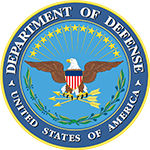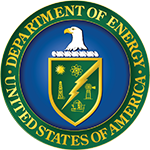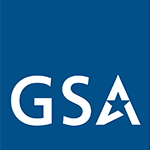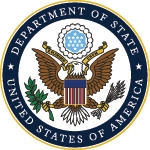This session includes utility energy service contract (UESC)-related government updates and begins with Federal Utility Partnership Working Group (FUPWG) introductory remarks presented by Carolyn Snyder, Deputy Assistant Secretary for Energy Efficiency in the Office of Energy Efficiency and Renewable Energy. The next session features Andrew Mayock, the Federal Chief Sustainability Officer leading President Biden's efforts to improve the sustainability of the federal government who will deliver an important White House Council on Environmental Quality (CEQ) update.
Following Mr. Mayock, a panel representing Edison Electric Institute (EEI), National Rural Electric Cooperative Association (NRECA), American Gas Association (AGA), and American Public Power Association (APPA) provide organization updates in addition to discussing how utilities are gearing up for the government requirements of carbon-pollution free (CFE), electric vehicle (EV), and shift in the grid and how the use of UESCs benefit those primary objectives moving forward.
Instructors
Carolyn Snyder, Deputy Assistant Secretary for Energy Efficiency, Office of Energy Efficiency and Renewable Energy Read Bio
Dr. Carolyn Snyder is the Deputy Assistant Secretary for Energy Efficiency in the Office of Energy Efficiency and Renewable Energy. In this role, she leads a diverse energy efficiency program and research and development portfolio that includes advanced manufacturing, building technologies, federal energy management, low-income weatherization, and intergovernmental partnerships.
Previously, Dr. Snyder served as the director of U.S. Environmental Program Agency's (EPA) Climate Protection Partnerships Division. She led voluntary partnerships with thousands of industrial, commercial, utility, state, and local organizations to remove market barriers for energy efficiency and renewable energy and accelerate emissions reductions. She oversaw the ENERGY STAR program, the Green Power Partnership, the Combined Heat and Power Partnership, the Center for Corporate Climate Leadership, and the State and Local Climate and Energy program. Prior to working with the EPA, Dr. Snyder supported both public and private clients on strategic management and environmental projects at McKinsey & Company. She served as a White House Fellow in the U.S. Office of Management and Budget working on cross-agency policy and management initiatives for the OMB director. She also was the director of Delaware's Division of Energy and Climate, where she created and led the new division and managed a wide range of energy efficiency, renewable energy, climate policy, and low-income weatherization programs. She earned a Ph.D. in environment and resources from Stanford University, a master's degree as a Marshall Scholar from both Oxford and Cambridge, and a B.A. from Amherst College. Her scientific research has been published in Nature, Paleoceanography, and Climatic Change.
Andrew Mayock, Chief Sustainability Officer, White House Council on Environmental Quality Read Bio
As the Federal Chief Sustainability officer, Andrew Mayock leads President Biden's efforts to improve the sustainability of the federal government, including by helping federal agencies prepare for and respond to the impacts of climate change on their operations and services.
Andrew brings over 25 years of public and private sector experience to the Biden Administration, including service in the Obama and Clinton Administrations. During the Obama Administration, Andrew served as the Deputy Director for Management and the Associate Director for General Government Programs at the U.S. Office of Management and Budget (OMB). At OMB, he led OMB's management offices and the President's Management Council with a focus on digital services, cybersecurity, acquisitions, financial management, personnel and performance management. As Associate Director for General Government Programs, he oversaw policy and budget for six cabinet agencies comprising $225 billion of the president's budget and covering over one million federal employees.
Lauren Khair, Director in NRECA's Business and Technology Strategies department, National Rural Electric Cooperative Association Read Bio
Lauren Khair is the director of the National Rural Electric Cooperative Association's (NRECA) Business and Technology Strategies department. Prior to NRECA, she worked for the U.S. Department of Energy's Energy Information Administration, where she developed and led the quality assurance process for the three major electricity surveys. At NRECA, she currently leads the U.S. Department of Defense engagement initiative. Lauren manages research projects totaling more than $8 million, primarily focused on military energy. A native of Northern Virginia, Lauren earned her B.A. from James Madison University and a master's degree in public policy from George Mason University's Schar School of Policy and Government.
Steve Kiesner, Senior Director of National Customer Solutions, Edison Electric Institute Read Bio
Steve Kiesner is the Senior Director of National Customer Solutions for the Edison Electric Institute (EEI). At EEI, Steve runs its National Key Accounts Program, which works to enhance opportunities and the overall business environment between EEI members and their large, multi-site national customers, including large chains, the U.S. Department of Defense (DoD), and technology companies. The program also serves as a clearinghouse of information about the industry to national customers. Under Steve's leadership, EEI serves as the platform for its members and multi-site national customers to engage one other: conduct business, develop mutually beneficial business models and approaches, and discuss important policy issues. Steve is also responsible for federal government and DoD customer issues, including energy resiliency, federal contracting, and efficiency.
Rick Murphy, American Gas Association Read Bio
Mr. Murphy works with the American Gas Association's (AGA) member companies to explore and advance new business models and leadership strategies for natural gas utilities to deploy in an evolving energy economy. Mr. Murphy also serves as the Executive Director for the AGA that funds independent, critical research that can be used to help formulate fact-based energy policies.
Prior to his current role at AGA, Mr. Murphy was the senior vice president of energy solutions services for National Grid, a natural gas and electric utility serving the northeast United States.
Mr. Murphy earned his M.B.A. from Northeastern University and a B.S. from the University of Massachusetts.
Alex Hoffman, Vice President of Technical and Operations Services, American Public Power Association Read Bio
Alex Hofmann is the Vice President of Technical and Operations Services at the American Public Power Association (APPA).
Alex sits as a principal member of the National Electric Safety Code Main Committee, was named one of industry's Top 40 Innovators by Public Utilities Fortnightly in 2017, and developed and piloted the Light Up Navajo project with the Navajo Tribal Utility Authority. He has been awarded three utility operations-related patents. He also sits on the National Association of Regulatory Utility Commissioners Task Force on Emergency Preparedness, Recovery, and Resiliency.
He oversees the safety, security, resiliency, energy services, reliability, and research and development portions of APPA member services. This includes programs like the Public Power Lineworkers Rodeo, mutual-aid, cybersecurity services, operations benchmarking, designation, and analytical services.
Alex assists the association and its members with technical advocacy before the U.S. Department of Energy, U.S. Environmental Protection Agency, Occupational Health and Safety Administration, U.S. Office of Management and Budget, and other governmental and industry forums.
Before joining APPA, Alex worked to develop electric infrastructure models, distributed energy projects, and LEED Certified electric systems. He earned his master's in public administration from Columbia University in the City of New York, and his B.S. from the California State University of Monterey Bay.
Learning Objectives
Upon completion of this course, attendees will be able to:
- Recognize the importance of energy efficiency in meeting decarbonization goals and how the U.S. Department of Energy can support other federal agencies;
- Identify what CEQ is doing to improve the sustainability of the federal government;
- Identify updates on the requirements of Executive Order 14057 and forthcoming guidance;
- Further recognize how utility partnerships can help agencies achieve aggressive decarbonization goals;
- and Identify how NRECA, EEI, AGA and APPA support federal and utility partnerships.








